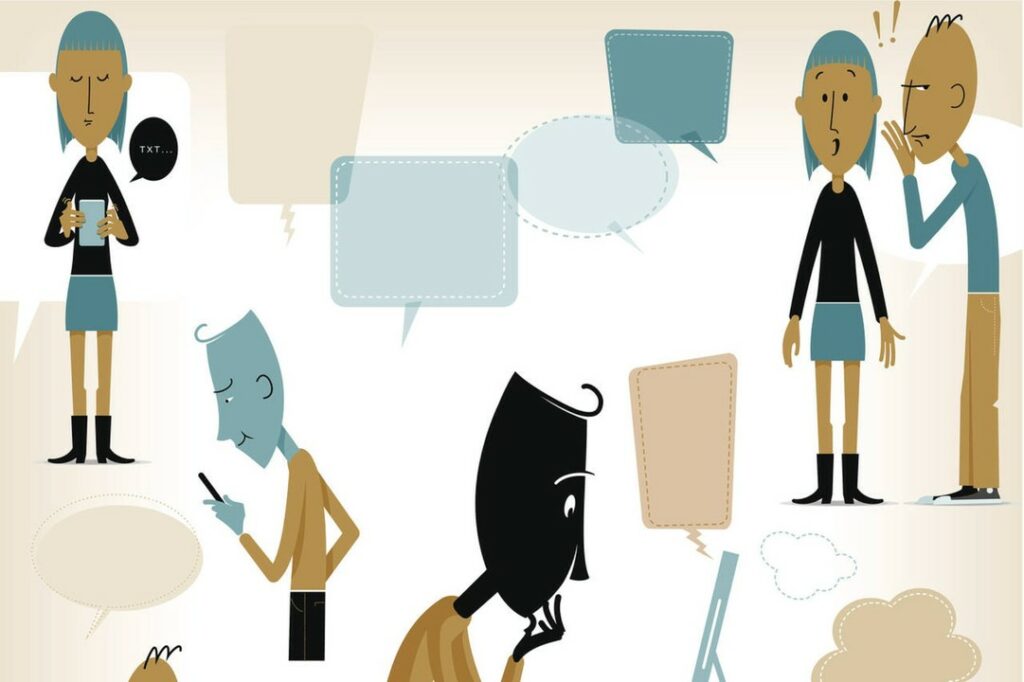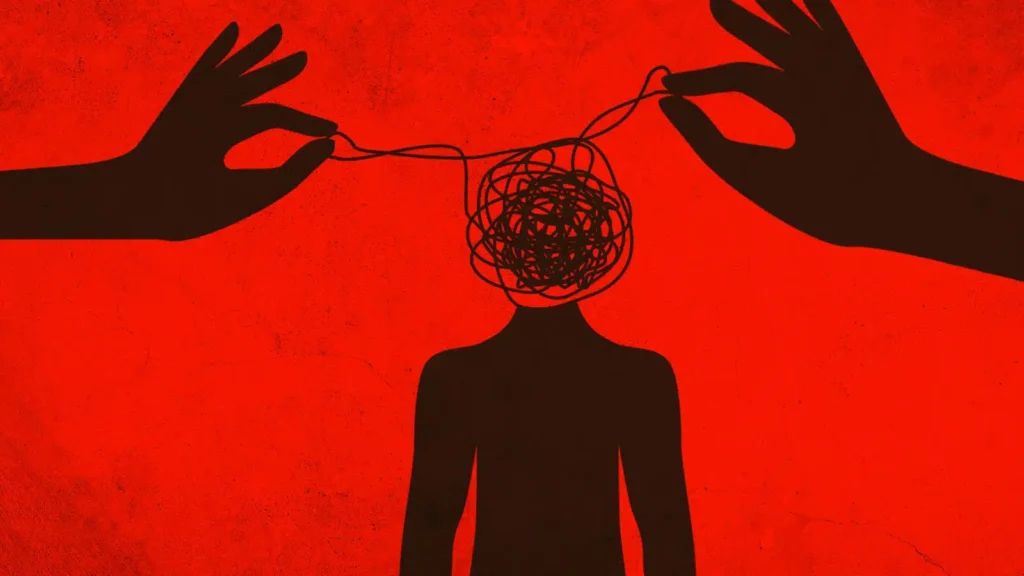Workplace friendships can really improve morale and make the work environment more enjoyable. Friends make a huge difference in how the day feels. Sharing laughs during breaks or having someone to lean on during tough times can bring a sense of connection and ease to the workplace. But let’s face it, friendships at work can also get tricky. Sometimes, the same connections that make the office fun can lead to awkward situations or even conflicts.
But let’s just think for a second: what happens when a close friend at work takes a stance you disagree with? It can be hard to speak up without worrying about straining the friendship. Or worse, you might go along with something you don’t fully support, just to keep the peace.
And then there’s social media. We’ve all seen posts of coworkers hanging out without us, and that feeling of being left out can sting. These little things can build up and create tension in the workplace, even when nobody means for it to happen.
The trick is balance. It’s not avoiding friendships at work but managing them in a way that keeps things professional. Setting boundaries, being upfront about expectations, and finding time to connect outside of work tasks can help.
In this article, we’ll explore the hidden risks of these relationships and how to handle them thoughtfully.
Table of Contents
The Hidden Risks of Workplace Friendships
Friendships at work can be comforting, but they come with their own downsides. Here’s a closer look at the risks you might face.
Fake Smiles, Real Consequences
It’s tough, but some coworkers only seem friendly. They might listen to you, laugh at your jokes, and act like they’re on your side. Then, when it serves their interests, they could report you to HR or spread something you said in confidence. These actions can feel like a betrayal, but they’re common in workplaces where competition runs high. Always think twice before sharing anything sensitive or personal, no matter how trustworthy someone seems.
Blurred Lines and Power Shifts
Office dynamics can change overnight. Imagine being close friends with a coworker who suddenly gets promoted. They’re now your boss, and they know details about you that you wouldn’t normally share with a manager.

This puts you in a vulnerable position where they could use that knowledge to control you or even hold it against you. It’s not uncommon for promotions to change people. Someone who once seemed understanding and approachable might become strict and demanding, creating tension in your professional relationship.
The Silent Betrayal
At the end of the day, your coworkers are vying for the same promotions and opportunities as you. While some may genuinely support you, others might see you as competition. Workplace friendships can sometimes blur the lines, making it easier for someone to take your ideas, use your words against you, or undermine you to get ahead. It’s not personal; it’s business. Keeping your goals and frustrations to yourself can help you stay focused without giving others leverage over you.
The Gossip Game
Workplace gossip spreads faster than you think. Sharing your thoughts about a bad manager, plans for a new job, or personal struggles can quickly make the rounds. Before you know it, your words have been twisted, and your reputation takes a hit. It’s a good rule of thumb to keep venting outside the office and stick to neutral topics at work. Even well-meaning colleagues can accidentally let something slip that affects you.
Emotional Dependency and Attachment
Building close friendships at work can feel great at first, especially if you’re someone who finds it hard to make friends outside of work. But what happens when that friend leaves? Or if you stop getting along? These relationships can create emotional dependence, and when they break, it can leave you feeling lonely or betrayed.

Romantic relationships at work are even riskier. Breakups can make day-to-day interactions incredibly awkward, disrupting your focus and productivity.
Awkward Fallout from Failed Friendships
Sometimes, you try to extend workplace friendships outside of the office, only to realize you’ve made a mistake. Maybe you didn’t click as well as you thought, or something happened to damage the relationship. Now, you’re stuck working with them every day. This kind of fallout can make collaboration uncomfortable and strain your work environment. It’s hard to move past a failed friendship when you see the person constantly.
Workplace Politics and Missteps
Workplace politics are unavoidable, and handling them poorly can have long-term consequences. Sharing frustrations, plans to job hunt, or personal challenges with the wrong person can easily backfire. Coworkers might use this information to gain favor with management or stir up drama.

Even if your intentions are harmless, your words can take on a life of their own. Staying neutral and professional can help you avoid unnecessary conflict.
The “Family” Illusion
Some workplaces push the idea that the team is like a family to encourage loyalty. While this might seem positive, it often leads to overworking employees under the guise of camaraderie. For example, you might be pressured to take on extra hours or tasks because it’s framed as “helping the team.” This mindset can blur boundaries and make it harder to push back on unreasonable demands. We all know our real family doesn’t expect us to sacrifice our well-being for the sake of a job.
Jealousy and Sabotage
While some coworkers may appear friendly, deep down, there can be a sense of competition and jealousy. When someone sees you excelling, getting recognition, or being promoted, they might not congratulate you; instead, they could try to undermine your success. They might downplay your achievements or steal your ideas to look better in front of the boss. The closer you get to them, the harder it might be to spot these behaviors until it’s too late.
Climbing the Ladder at Your Expense
Some people treat workplace friendships as stepping stones to climb the corporate ladder. They’ll pretend to be your friend while waiting for the right moment to use your work or mistakes to get ahead. These types of colleagues may take credit for your ideas or point out your weaknesses to managers, putting you in a position where you’re seen as less competent. You might think they’re supportive, but they’re quietly building their career on your hard work.
The Emotional Manipulator
There are people who can be incredibly skilled at manipulating emotions. They know just what to say to make you feel guilty or responsible for their actions. They’ll push you to do things that benefit them under the guise of friendship or even guilt you into taking on more work.

It can be difficult to see this coming because they play the role of the “needy” friend or colleague. Over time, you may feel mentally drained, stressed, or resentful without understanding why.
The “One-Up” Friend
Some colleagues always seem to have to be “better” than you, no matter what. These coworkers make everything a competition. Whether it’s work performance, social recognition, or personal life, they’re always trying to one-up you. Over time, this can drain your energy and affect your own self-esteem. You might start doubting your achievements or comparing yourself to their exaggerated successes. It’s exhausting and leaves you feeling like your efforts are never good enough.
The Boss’s Pet
Everyone’s had a coworker who’s always the boss’s “favorite.” They get special treatment, extra perks, and often, they throw others under the bus to keep their standing. This person can be an emotional parasite, sucking up to the boss to avoid consequences for their actions. They’re the first to take credit for team success but the first to blame others for failures. They may even use their inside knowledge to manipulate situations and put themselves in the best light.
Romance and Power Plays
Romantic relationships at work are a notorious gray area, but the darker side of office relationships goes beyond the awkwardness when things go wrong. If one partner is in a position of power, the imbalance can lead to unethical behavior.
For instance, one person might start using their influence to favor the other, or manipulate the situation to gain promotions or advantages. This can result in a toxic work environment where others feel like they can’t compete fairly or openly voice their concerns.
The “Constant Crisis” Co-worker
There are coworkers who always seem to be in the middle of a crisis, whether personal or professional. While it might seem like they need support, over time, their constant need for help can drain you.

These coworkers are the emotional vampires of the workplace, consistently pulling others into their chaos without regard for the emotional toll it takes. At first, you might offer support, but as it continues, you find yourself emotionally exhausted and overwhelmed.
Keeping It Cool
One of the best ways to handle workplace relationships is by staying neutral. Getting too involved in office friendships or conflicts can make things difficult when issues arise. Taking sides or getting too close to colleagues can lead to tension or misunderstandings, especially when friendships go wrong. By maintaining a neutral stance, it’s easier to keep things professional and avoid unnecessary drama that could hurt your reputation or career.
At work, it’s important to recognize that not every colleague is going to be a close friend. Trying to force friendships can create discomfort and lead to awkward situations. If a friendship doesn’t develop naturally, it’s best to let it go.
Workplace friendships should feel natural and mutual. Spending time with coworkers who genuinely want to connect is far more rewarding than trying to fit into a group or forcing interactions. If a colleague makes an effort to spend time together, that’s a good sign of a positive relationship. However, if there’s a sense of obligation rather than mutual interest, it’s best to avoid pushing the relationship and focus on the ones that are truly meaningful.
Being Friendly Without Losing Focus
It’s fine to be friendly at work; it makes the environment more enjoyable. But there’s a difference between being friendly and oversharing or forming close bonds. When money, promotions, or office politics come into play, even the best relationships can take a turn. Protect yourself by setting boundaries and keeping things professional when needed. A little caution can go a long way in preserving both your career and your peace of mind.
Have big ideas for your business? Let us help you get started! At EvolveDash, we’re passionate about helping businesses grow and evolve in the digital world. Our team is here to help every step of the way, from developing custom mobile apps to creating personalized websites.
With a proven track record of helping over 100 satisfied customers and 450 completed projects, we’re confident we can help you achieve your goals too. Ready to take your business to the next level in 2025? Let’s turn your vision into lasting success!
FAQs
What should I do if a coworker shares sensitive information with others?
If someone shares something personal or confidential and it gets passed around, approach them privately to express your discomfort. It’s also wise to reassess what you share in the workplace, as gossip can spread quickly.
How can I avoid favoritism in the workplace?
Try to maintain fairness in your interactions with all colleagues, even if you have close friendships. Be mindful of not excluding others or offering special treatment to certain individuals, as it can create division in the team.
What are the signs that a workplace friendship is unhealthy?
Signs of an unhealthy workplace friendship include constant competition, emotional manipulation, gossiping, and a lack of respect for personal boundaries. If the relationship starts to drain you emotionally or affects your work, it’s time to reassess.
Is it okay to avoid workplace friendships altogether?
It’s completely fine to choose not to form close friendships at work. You can still be polite and cooperative without developing personal relationships. Some people prefer keeping a professional distance to avoid potential conflicts or complications.
How can I maintain boundaries in a friendship with a coworker?
To maintain healthy boundaries, be mindful of how much personal information you share. Set limits on after-hours communication, and ensure that work-related matters are kept separate from personal conversations. Respect for each other’s space can help maintain a balanced relationship.



















